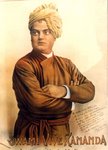A Scoutmaster Saves the Day
For weeks the troop has been engaged in expectant preparation for its Parents' Night program. Everything was in order. The walls were filled with displays, the scouts with enthusiasm and the tables with good things to eat.
The toastmaster was well under way. The crowd sang with that respectably restrained enthusiasm that typified a Parents' Night program. Then Jimmie Davis arose to give his oration. This was the moment he had looked forward to for many weeks. As he arose, he caught a glimpse of his mother's beaming face and his father's stolid assured countenance. He started with a great burst of enthusiasm. He waxed more eloquent, conscious that his listeners were paying a high tribute to him by their careful attention.
Then something happened. The world seemed to swim before him. He slowed down - faltered - stopped. His face flushed, his hands sought each other frantically and in desperation he looked helplessly toward his scoutmaster.
And ever prepared, having heard that boyish masterpiece rehearsed again and again, the boy's leader supplied the missing words and the lad went on. But somehow it was different now. The masterpiece had been marred.
Jimmie paused again - and the scoutmaster prompted him again. For the remaining two minutes, the oration seemed more the scoutmaster's than the boy's. But Jimmie finished it. In the heart of the lad who sat down, knowing that he had failed, there was a heavy load. Chagrin was plainly written on the face of the boy's mother, and a twitch of the father's face indicated a pained consciousness of shame.
The audience applauded in a perfunctory way, sorry for and pitying the boy who they thought had failed. But the scoutmaster was on his feet. His quiet eyes twinkled. All listened tensely, for he did not talk loudly. What was he saying?
"I am more happy than any of you can possibly understand because of what has just happened. You have seen a boy make a glorious victory out of what might have been a miserable failure.
"Jimmie had his chance to quit. To have quit would have been easy. But to finish the job even in the face of 200 people required the highest kind of bravery and courage I know.
"You may someday hear a better oratorical effect, but I am confident that you will never see a finer demonstration of the spirit of our troop than Jimmie has just given you - to play the game even under difficulties!"
The people thundered their applause now. Jimmie's mother sat straight and proud. The old look of assurance was back on the face of the boy's father. The entire group was enthusiastic again and Jimmie, with a lump in his throat, said something to the friend beside him that sounded like, "Gee, if I can be that kind of scoutmaster someday."


